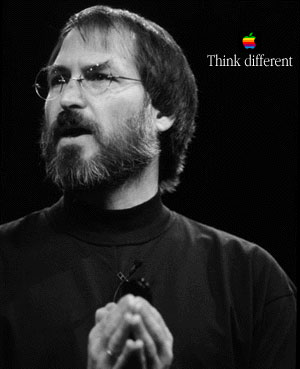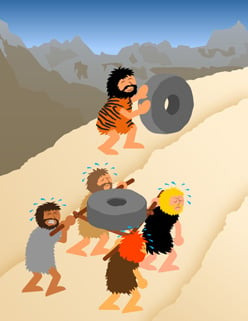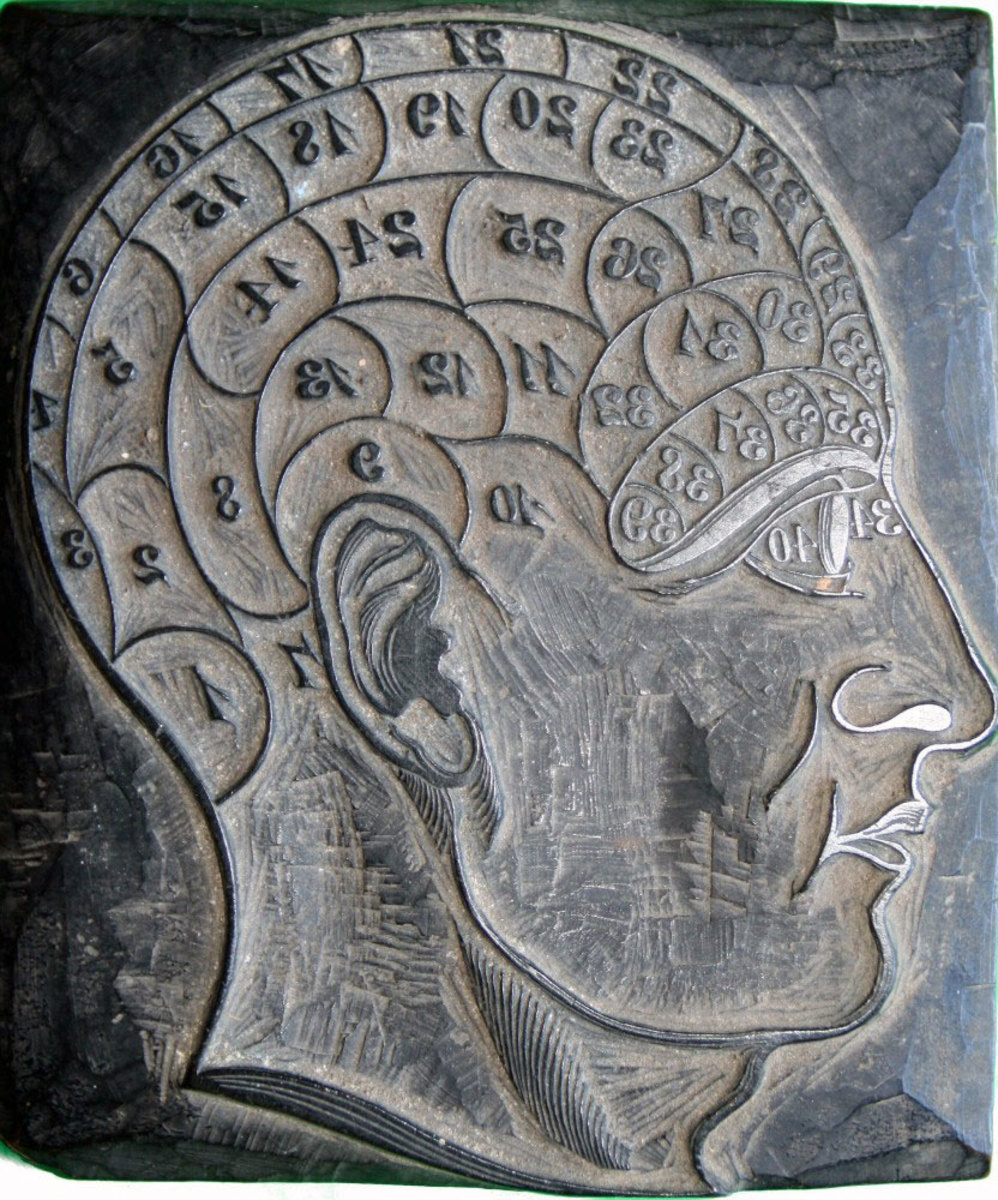How to be A Positive Deviant
Thermostats and thermometers
I work in an organization some people have referred to as "weird." It's hard to describe why it is, so let's just say its had its problems and leave it at that. So the other day, I was in the atrium of the building and talking to a couple of bright people who have recently been hired into positions of responsibility. We were collectively talking about fixing some of the problems endemic to the place. Then one said, "yeah, we just need a few more of us positive deviants to turn this place around."
Positive deviants. I love it! Of course, I thought it was just some new creative term he invented, but in googling the term have discovered its just a new expression making its way around the business world. But I don't care. I like it, and I'm going to adopt it!
Here's what happens, in any given organization, family unit, whatever. There's a set of expected behaviors or thought patterns that each has. Sometimes those behaviors or patterns simply don't work well. Often, things have to get really bad before anyone recognizes the dysfunction, and even then, very few people know what to do to turn things around. Most people just float in the same direction as the problem, and frequently complain about the problems. Others just leave, because life's too short to get sucked into ugliness or craziness. Then, there are the positive deviants.
Those are the people who refuse to be like that dysfunction, and instead just stay true and on a positive course, regardless of any chaos around them. They put one foot in front of the other, don't get thrown off course by weirdness, and just continue moving toward the direction of hope, and positivity, and profound possibilities. They are the thermostats. Others are the thermometers.
~~~~~~~~~~~~~~~~~~~~~~~~~~
“To be yourself in a world that is constantly trying to make you something else is the greatest accomplishment. ” ~ Ralph Waldo Emerson



Flip it...
But really it goes beyond positivity. It's great to be a happy or uplifting person. We need more of those desperately. But a positive deviant is also a solver of problems, a person who finds ways to spill more sunlight into the room by thinking and acting in edgy, unexpected, transformative ways.
One of the things I like to do when I come across what seems to be an insurmountable option, is to "flip it." Turn it on its head. As an example, I may look at:
- whether it truly is an obstacle, or just appears to be because it resembles problems I or others have seen before.
- whether what I believe to be may be black instead of white and vice versa. Perhaps its opportunity in disguise. For example, the person who appears obnoxious may be the person with the real solution instead of the person who just agrees with everything. Simply stated, do the opposite of what doesn't work!
- whether action is warranted or not. Sometimes the best action is to sleep on it, give it some time and perspective.
- the other side of the problem. What does it look like beyond the seeming bleakness of the moment - do things look different, or do they look much like this side of the problem; meaning, it really may not be a problem at all. It just looks like one in the moment. One of my favorite expressions is "100 years from now; all new people."
Even the terms "positive" and "deviance" don't sound normal together. We associate deviance with social weirdos or outcasts, who create blood-spattered artwork that makes us feel edgy and uncomfortable, but all it means is behavior that departs from social norms.
~~~~~~~~~~~~~~~~~~~~~~~~~
“You have your way. I have my way. As for the right way, the correct way, and the only way, it does not exist.” ~ Friedrich Nietzsche
“I will not let anyone walk through my mind with their dirty feet.” ~



Positive deviance as a social phenomenon
There are myriad descriptions of positive deviants out in the internet. I found the best list of characteristics to be in this article, by the Positive Deviant Network, which include:
- Passion
- High moral or social purpose
- Seeing holes vs the net
- Moving towards, not away
- Rapid cognition
- Checking the edges, and
- Low regard for social convention
In the book The Power of Positive Deviance: How Unlikely Innovators Solve the World’s Toughest Problems , the authors describe positive deviance as a strength-based approach which is applied to problems requiring behavior and social change. This approach is based on the following assumptions:
- Communities already have the solutions. They are the best experts to solve their problems.
- Communities self-organize and have the human resources and social assets to solve an agreed-upon problem.
- Intelligence and know-how is not concentrated in the leadership of a community alone or in external experts but is distributed throughout the community. Thus the aim is to draw out the collective intelligence to apply it to a specific problem requiring behavior or social change.
- A focus on sustainability enables the community or organization to seek and discover solutions to a given problem because successful uncommon behaviors are already practiced in that community within the constraints and challenges of the current situation.
- It is easier to change behavior by practicing it rather than knowing about it (i.e.“it is easier to act your way into a new way of thinking than think your way into a new way of acting”).
~~~~~~~~~~~~~~~~~~~~~~
“About all you can do in life is be who you are. Some people will love you for you. Most will love you for what you can do for them, and some won't like you at all.” ~ Rita Mae Brown



How to be a positive deviant: the Gerg version
Those constructs of positive deviance are so well articulated, I won't repeat them here. Instead, here's my take on how to be a positive deviant, in whatever relationship, organizational or social structure you operate:
- When the crowd is running one way, stop. It's possible that the right response is to turn and run directly opposite the crowd. If an angry dog runs snarling toward you, run at it like a wild radical; my bet is he'll turn tail and run away!
- Look inward, rather than outward for direction. You can't please everyone, especially when they're all going in a hundred different directions; it just gets confusing. Trust that you have the answers, and let them quietly reveal themselves to you.
- Talk to a child. If possible, ask what she would do, if she could.
- Turn weaknesses into strengths. If I don't pay attention while running, my speed drops about two-thirds into my target distance. At that point, my attitude drops and I start feeling defeated. Those thoughts drop my speed even more. So now, when I reach that point, I make it my personal challenge to stay focused, imagining myself finishing strong, straightening my posture and adding more bounce and swagger. As a result, I begin to feel insurmountable!
- Don't spend too much time focusing on a problem. Take our economic condition and all the fringe elements fighting against one another. I think a key issue is that the problem is not framed correctly. As I see it, a huge barrier is that too many people think that there is a limited number of possibilities - so to redistribute the economic opportunities in America, it must mean less for me an order to provide more for you. Is that even true? Flip it. As I conveyed in the Economics of Happiness, the health of our economy is predicated on the positive expectations of its citizens. Is that scary or wonderful? Both, of course. Free will. Why do we spend so much emotional energy on the things that are wrong? There is so much right. This isn't rocket science.
- A positive deviant is committed to the practice of continuous learning. We don't have to be alcoholics to know that 12 step programs are one great example of a successful system that basically instructs members on how to be better people. We are flawed. Admit it at least. Too many people seem to act as though they don't even know that.
- Don't be so committed to one dogma or set of solutions. You're not going to get in trouble if you're a Christian and read some Buddhist literature. No one's going to chop off your hands if you're a Republican and you vote for a Democrat. Lightning's not going to strike you if you admit to someone that you're wrong on an issue, or if you have to say you're sorry.
- By all means be authentic. Don't be some fake douche bag. The world's full of those.
- Stop being a fatalist. This world and people have existed for centuries. Just because you can't escape your fate doesn't mean you have to be all pissy about it! Find the sunrise. Look for the light. Trust that there is a solution on the other side when things seem bleak. Get off your high horse and let your bare feet feel the Earth.
- Watch for excuses - especially your own. "Most people would learn from their mistakes if they weren't so busy denying and defending them," says John L. Mason in Let Go of Whatever Makes You Stop .
It's tough work being optimistic. A positive deviant has to fight his our own frustrations and irritations as well as those around him. Sometimes it feels like a salmon fighting to swim against the current. But what's the alternative? Forward is all we have; that is the landscape upon which we plant the future of hope and possibilities. Being a positive deviant means being individualistic, exercising free will and taking creative control over what will be.
That's the real magic of living well.
~~~~~~~~~~~~~~~~~~~~~~
“I won't tell you that the world matters nothing, or the world's voice, or the voice of society. They matter a good deal. They matter far too much. But there are moments when one has to choose between living one's own life, fully, entirely, completely—or dragging out some false, shallow, degrading existence that the world in its hypocrisy demands. You have that moment now. Choose!” ~ Oscar Wilde
“My kids are starting to notice I'm a little different from the other dads. "Why don't you have a straight job like everyone else?" they asked me the other day. I told them this story: In the forest, there was a crooked tree and a straight tree. Every day, the straight tree would say to the crooked tree, "Look at me...I'm tall, and I'm straight, and I'm handsome. Look at you...you're all crooked and bent over. No one wants to look at you." And they grew up in that forest together. And then one day the loggers came, and they saw the crooked tree and the straight tree, and they said, "Just cut the straight trees and leave the rest." So the loggers turned all the straight trees into lumber and toothpicks and paper. And the crooked tree is still there, growing stronger and stranger every day.” ~ Tom Waits



